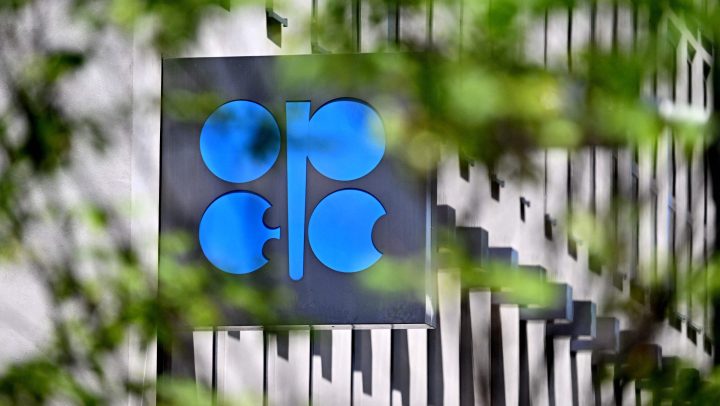
To stay atop the oil market, OPEC became OPEC+. But keeping the cartel in sync isn’t easy.
To stay atop the oil market, OPEC became OPEC+. But keeping the cartel in sync isn’t easy.

In 1960, when Saudi Arabia, Venezuela, Iran, Iraq and Kuwait formed a cartel called the Organization of the Petroleum Exporting Countries, or OPEC, together they produced more than half of the world’s oil. They used it to remake the market for oil. But while OPEC has grown to 13 members, its global market share, which fluctuates, has lately hovered roughly around 30%.
A decade ago, OPEC members thought they were facing a crisis.
“They were starting to lose control of the market, especially because the United States was becoming a major oil exporter,” said Amy Myers Jaffe, an energy expert at New York University’s School of Professional Studies.
The fracking boom here in the U.S. helped cause a crash in oil prices, “and so they had to do something to increase their, what we call in economics, ‘market power,’” Jaffe said.
That market power is how OPEC influences the global price of oil. Pump less and prices go higher; pump more and it’s cheaper — at least in theory. And in 2016, led by Saudi Arabia, the cartel moved to protect its influence.
“To do that, they formed a partnership — mainly with Russia — but also with some other producers that were previously not in OPEC. And that is called OPEC+,” Jaffe said.
Russia is the world’s third-largest producer of oil after the U.S. and Saudi Arabia. With Russia on board, the expanded cartel accounts for almost 60% of global oil production, according to the Energy Information Administration. And that’s just how the Saudis want it.
“They went out of their way to elevate Russia to this special position,” said Ellen Wald, senior nonresident fellow at the Atlantic Council Global Energy Center. In the early days of OPEC+, Saudi Arabia’s then-energy minister would arrive at OPEC Secretariat meetings alongside his Russian counterpart.
“They’d walk into the Secretariat and walk down the red carpet — yes, they have an actual red carpet — and they would sit together at the highest table in the room and they would do the press conference together,” Wald said. “That, I think, was really crucial to keeping Russia on board.”
Then came the start of the COVID-19 pandemic. As demand for oil tanked, Saudi Arabia wanted members to cut production; Russia pushed back.
“It resulted in a lot of oil being flooded into the market for a brief period of time,” Wald said.” Prices fell to a record low, which showed “that when Saudi Arabia and Russia work together, the market is much more stable and prices are much more stable than when they’re at odds.”
They’ve been having a hard time working together since Russia invaded Ukraine last year. To prop up prices, the Saudis have said they’re cutting oil exports by a million barrels a day.
Meanwhile, “Russia is pumping flat out,” said Victor McFarland, an associate professor of history at the University of Missouri. “They are producing more oil and exporting more oil than they’re really supposed to based on their OPEC+ agreements.”
It’s classic OPEC. Members break their promises all the time, said McFarland.
“OPEC asks them to not produce more than a certain amount, and they’ll often exceed that quota because it’s in their self-interest,” McFarland said. “They want more revenue right now, and that’s the case with Russia.”
And there’s not much Saudi Arabia can do about it.
“In the end, as important as OPEC and OPEC+ targets are, there are other factors that influence oil prices and oil markets and, in some ways, are bigger than that,” said Kaushik Deb, senior research scholar at the Center on Global Energy Policy at Columbia University.
Demand for oil from China softening; electric vehicles and renewables taking off; traders betting that oil prices will fall — all examples of things OPEC and OPEC+ cannot control.
There’s a lot happening in the world. Through it all, Marketplace is here for you.
You rely on Marketplace to break down the world’s events and tell you how it affects you in a fact-based, approachable way. We rely on your financial support to keep making that possible.
Your donation today powers the independent journalism that you rely on. For just $5/month, you can help sustain Marketplace so we can keep reporting on the things that matter to you.











